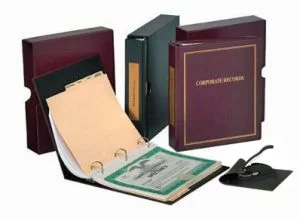
It’s not just mega-rich individuals who jet set around the globe that need asset protection solutions. Regular folks, with hard-earned assets to secure for their family’s use and enjoyment, need it too – if not more so. Today, you could get hit with medical bills that are far beyond insurance coverage. You could get into an automobile crash that leaves you financially devastated. We know a family who had a minor child who started a fire that burned countless acreage and caused over $12 million in damage. Someone was foreclosed upon and the lender hit them with a mortgage deficiency lawsuit. So, what do you do? How can you avoid lawsuits altogether? You may not know it, but you most likely already benefit from a basic asset protection right now.
If you own a car, a house or a business, you likely also have some kind of liability insurance. Any type of insurance is an example of a basic asset protection instrument. The problem is that no matter how much your insurance coverage, you can always get sued for more. Plus, what if you have car insurance but someone sues you for breach of contract, sexual harassment, personal injury or property damage not related to an automobile? What if you own a business and someone makes a false claim of discrimination based on race, color, religion, sex (including pregnancy), national origin, age, disability, etc.? Wage discrepancy?

An IRA and a homestead exemption are two more examples of items that are protected in some states. Not all states have strong protections for these items, however. In California, for example, if it is found that you can likely support yourself in another manner in retirement, a judge can order the seizure of your IRA. Pennsylvania has no homestead exemption. In more than half the states, the homestead exemption is for less, often far less, than $100,000. This means that the amount above this is subject to seizure.
Modern Asset Protection Solutions
So, what is the solution? Lucky for you, there are several powerful modern legal tools to protect assets that are available to consumers today. You can enjoy greater asset protection with and a wide range of legal entities, including corporations, LLCs and asset protection trusts. Keep in mind that each person’s plan must be tailor-made to fit an individual’s unique set of assets and professional and personal circumstances. In addition, these instruments protect you best when they are firmly in place before someone files a lawsuit against you.

Asset protection can be an efficient lawsuit deterrent. If you have already been sued, it can provide an incentive for a quick and cheap settlement. It can protect you either way, that is, before or after a lawsuit. So, there’s really no good reason not to have a comprehensive and current solution for protecting your assets.

Defining Asset Protection
Let’s start by making it clear what asset protection is not. It is not a way to hide your income from the government to avoid paying taxes on them. Neither is it a way to elude and defraud people by hiding ill-gotten gain. Asset protection is not about keeping secrets from rightful claimants such as children of a former marriage.
Rather, asset protection solutions are simply a legitimate forms of wealth management. Governments all over the world grant their citizens the right to secure their hard-earned assets from threats. In the U.S., each state specifies the breadth and range of asset protection instruments that are available to its residents. Start your asset protection planning by finding out exactly what your state or country already exempts from creditor claims. Depending on what assets you have, you may not need to add much to what your jurisdiction already gives you.
You must also consider the type of work that you do. Some occupations, such as being a surgeon or even an accountant, carry a high risk for litigation. However, to be perfectly honest, in litigious-happy America, almost every occupation carries a risk for litigation, many of them frivolous. There is no shortage of opportunistic claimants whose only goal is to separate you from your assets. Having an asset protection plan in place is a clear signal to these individuals that you’re serious about protecting what you’ve worked hard for – and they’re in for a tough fight.

Strategies to Protect Assets
It’s your non-exempt assets that need protection. One way to do this is to create a wall around each type of asset you have. Keep your personal assets, such as your home or private vehicle, separate from your professional assets. Create a business entity to ‘house’ your non-personal assets. A corporation or a limited liability company (LLC) generally works quite well in sequestering business assets. Be aware, however, that the protection each entity gives you can differ in crucial areas. Furthermore, the asset protection solution each entity provides vary greatly from one state to another. The protective features of legal business entities are numerous, but only if they are the features you need to secure your assets. Be sure to do your homework and consult an expert. There are numbers and forms on this page that you can use to ask questions.
Setting up an asset protection trust is another common strategy to protect assets. There are several different types of trusts you can establish that are specifically designed for optimum asset protection. Once again, perform your own due diligence on each one, or seek the assistance of a trusted professional or organization like this one. Shifting concepts of liability in both U.S. and foreign courts have greatly contributed to the need for asset protection. Because of this, there is an increasing number of asset protection tools available today. So many options can be confusing. But it also presents a great opportunity to craft an asset protection plan that’s tailor-made just for you.

Domestic and Offshore
You have the option of establishing a trust or business entity within the U.S. or in an overseas location. If you’re uncomfortable with the thought of entrusting some or all of your assets offshore you can stay domestic. But it offers less protection. Be aware domestic asset protection legislation is still fairly new in the U.S. and very few states have them. You may unexpectedly find yourself facing a Texas judge demanding a turnover of your assets protected by a Delaware trust to a judgement creditor. It’s not always easy to predict how a showdown between two equal but separate jurisdictions will turn out.
On the other hand, assets held in a foreign jurisdiction are under the laws and protection of a sovereign country. Your local judge does not have the right to issue court orders to foreign trustees. Moreover, offshore courts routinely require a creditor with a claim against these assets to mount another trial. But this time, the trial will be on their shores and under their laws. Only the most determined of creditors will take the chance and submit themselves to this obvious debtor-friendly requirement. Think of an offshore asset protection plan as an extra security blanket for your assets. You may never need it, but knowing it’s there may be all you need to sleep better at night.

Asset Protection Goals
Nuisance plaintiffs are only after one thing – an easy way to divest you of your assets. Sometimes all they have to know is that you have your assets well protected and they will leave you alone. A good asset protection plan can be an excellent lawsuit deterrent.
It can also provide an incentive for settling a claim. Rather than mount a lengthy and expensive court room battle for your well-secured assets, some creditors might be willing to settle for a fraction of their original demand to spare themselves (and everyone else) the ordeal. This may sound like a defeat for you; after all, any type of settlement will end up costing you something. But if you end up paying five percent instead of 100 percent without having to shoulder the cost of trial, doesn’t that sound like a victory? And think of your legal nemesis who has to be happy with five percent instead of 100 percent. Doubt very much he or she will walk out of court feeling like a winner.

Best Advice
There is no single asset protection advice that will be practical and applicable to everyone all the time. That is, except perhaps for one – start early. An plan to protect assets works best when it is firmly in place before any legal action is taken against you. That said, it is almost never too late to do something to safeguard at least some of your assets. Acting later rather than earlier may necessitate an overseas maneuver, but there is always something you can do.
It’s also sound advice to review your asset protection plan regularly. New or updated legal tools may work better than your current mix of instruments. Recent world events may be compelling enough to check how your plan will hold up under possible new threats. Make it a habit to conduct a review after a major event in your professional and/or personal life. Make sure your asset protection plan continues to support your current plans and future goals for your assets. If your plan is outdated, it will do a less-than-adequate job of securing your assets.

Conclusion
Protecting your assets takes many forms – from basic insurance coverage to the most sophisticated asset protection trust. A complex plan may not necessarily provide the ideal protection for your type of assets. It’s important to keep in mind that the ‘best’ asset protection is the one that addresses and supports your individual needs and goals.
The legal definition of liability appears to be in a state of constant flux. Because of this, asset protection has to be equally adept to stay ahead – or even just to keep up. There are certainly more protective legal instruments available to consumers now than ever before. It can be confusing. But that’s only a reason to try harder, rather than an excuse not to do it. Once you do, you will find that asset protection can be an excellent lawsuit deterrent. Or, if you already have a pending lawsuit, having an asset protection plan can be a powerful incentive for an early and affordable settlement.
Initiate the strategy to protect our assets early in the game – before there’s even a whiff of a lawsuit against you in the air. When it’s in place, review it often and thoroughly to make sure it’s current and relevant. Protecting your assets takes constant vigilance. It’s a litigation-happy world out there. Don’t let your assets be caught without ample protection. You’ve worked too hard all your life just to have someone snatch them away. You have no shortage of options and therefore, no excuse not to have an asset protection plan in place either.



